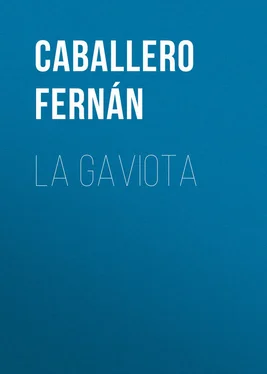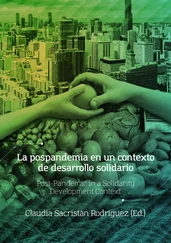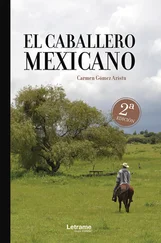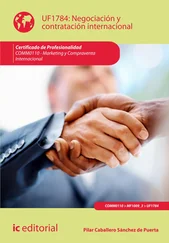Fernán Caballero - La Gaviota
Здесь есть возможность читать онлайн «Fernán Caballero - La Gaviota» — ознакомительный отрывок электронной книги совершенно бесплатно, а после прочтения отрывка купить полную версию. В некоторых случаях можно слушать аудио, скачать через торрент в формате fb2 и присутствует краткое содержание. Жанр: foreign_antique, foreign_prose, на английском языке. Описание произведения, (предисловие) а так же отзывы посетителей доступны на портале библиотеки ЛибКат.
- Название:La Gaviota
- Автор:
- Жанр:
- Год:неизвестен
- ISBN:нет данных
- Рейтинг книги:3 / 5. Голосов: 1
-
Избранное:Добавить в избранное
- Отзывы:
-
Ваша оценка:
- 60
- 1
- 2
- 3
- 4
- 5
La Gaviota: краткое содержание, описание и аннотация
Предлагаем к чтению аннотацию, описание, краткое содержание или предисловие (зависит от того, что написал сам автор книги «La Gaviota»). Если вы не нашли необходимую информацию о книге — напишите в комментариях, мы постараемся отыскать её.
La Gaviota — читать онлайн ознакомительный отрывок
Ниже представлен текст книги, разбитый по страницам. Система сохранения места последней прочитанной страницы, позволяет с удобством читать онлайн бесплатно книгу «La Gaviota», без необходимости каждый раз заново искать на чём Вы остановились. Поставьте закладку, и сможете в любой момент перейти на страницу, на которой закончили чтение.
Интервал:
Закладка:
“Nothing is wanting: all that I have and all that I can amass are hers. Maria! my daughter! you will put on this clothing! Do this for the love of heaven! – Mariquita, you see it is what the doctor orders.”
Marisalada, who was aroused by the noise made by her father, cast an irritated look on Stein, and said to him in a sharp voice:
“Who governs me?”
“And say that they do not give this government to me, by means of a good branch of wild olive!” murmured Momo.
“She must have,” continued Stein, “good nourishment, and substantial soups.”
Maria made an expressive gesture of approbation at the same time.
“She should be nourished with milk diet, and chickens, and fresh eggs.”
“Did I not tell you so!” interrupted the old woman, exchanging a look with Pedro: “Don Frederico is the best doctor in the world.”
“Take care that she does not sing,” remarked Stein.
“Am I never to listen to her again?” cried poor Pedro with grief.
“See, then, what a misfortune!” replied Maria. “Let her be cured, and then she can sing night and day, like the ticking of a watch. But I think it will be best to have her taken to me, for there is no one to nurse her, nor any one who knows like me how to make good soup for her.”
“I can prove that,” said Stein, smiling, “and I assure you one might set before a king a soup prepared by my good nurse.”
Maria never felt more happy.
“Thus, Pedro, it is useless talking of it; I will take her home.”
“Remain without her! no, no, it is impossible.”
“Pedro, Pedro, it is not thus we should love our children,” replied Maria. “To love them is to do above all that which will benefit them.”
“So let it be!” replied the fisherman, rising with resolution; “I place her in your hands, I confide her to this doctor’s care, and commend her to the divine goodness.”
With difficulty could he pronounce these last words, which flowed rapidly, as if he feared to recall his determination; and he went to harness his ass.
“Don Frederico,” asked Maria, when they were alone with the invalid, who remained drowsy, “is it not true, that, with God’s help, we will cure her?”
“I hope so,” replied Stein; “I cannot tell you how much this poor father interests me.”
Maria made a package of the linen which the fisherman had taken out of the box, and Pedro came back leading the ass by the bridle. They placed the invalid on the saddle: the young girl, enfeebled by the fever, opposed no resistance. Before Maria had mounted Golondrina, who appeared quite content to return in company with Urca (name given to a great sea-fish, and which was that of Pedro’s ass), the fisherman took Maria aside, and said to her, in trying to slip some pieces of gold in her hand:
“This is all I could save from my shipwreck, take it, and give it to the doctor, for all I have is for him who can give me back my daughter.”
“Keep your gold,” replied Maria, “and know, in the first place, it is God who has conducted the doctor hither; in the second place – it is I.”
Maria pronounced these last words with a light tinge of vanity.
They commenced their journey.
“Do not stop, grandma,” said Momo, who walked behind; “however large may be the convent, it must be filled with people. Eh! what? the cabin was not good enough for the Princess Gaviota?”
“Momo,” replied the grandma, “mind your own affairs.”
“But what do you see in her? And what touches you in this wild Gaviota, to take her thus under your care?”
“Momo, a proverb says, ‘Who is thy sister? thy nearest neighbor;’ another adds, ‘Wipe the nose of thy neighbor’s child, and take her to thee.’ And here is the moral: ‘Treat thy neighbor as thyself.’ ”
“There is yet another proverb,” added Momo, “which says, ‘He is mad who occupies himself about others.’ But it is of no use. You were obstinate about raising the palm to San Juan de Dios .”
“You will not be the angel to aid me,” said Maria with sadness.
Dolores received the invalid with open arms, as approving the resolution of her mother-in-law.
Pedro Santalo, who had accompanied his daughter, called the charitable nurse before he returned, and, putting the pieces of gold in her hand, said —
“This is to defray the expenses, and that she may want for nothing. As to your care, God will recompense you.”
The good old woman hesitated an instant, took the gold, and said —
“It is well, she shall want for nothing. Depart without uneasiness, Pedro, your daughter is in good hands.”
The poor father went away hurriedly, and did not stop till he reached the coast. Then he returned to the side of the convent, and wept with bitterness.
Maria said to Momo: “Bestir yourself. Go to the village, and bring me a ham from Serrano’s, who will please send me a good one, when he knows it is for a poor sick girl. Bring me at the same time a pound of sugar and a quart of almonds.”
“Just so, always sent about! Throw away every thing you possess,” cried Momo. “Think you they will give me all this on credit, and for my handsome face?”
“Here is to pay for them,” replied the grandma, and she placed in his hand a piece of gold of four duros (about 4 dollars).
“Gold!” cried Momo, stupefied: for the first time in his life he saw this metal in the form of money. “From what demons have you snatched this?”
“What is it to you?” replied Maria; “don’t worry yourself.”
“It needs no more than this,” replied Momo, “that I serve as domestic to this magpie, this accursed Gaviota! I will not go.”
“Go, boy, at once, and nimbly too.”
“Ha! Well – no, I will not go; I will not annoy myself,” repeated Momo.
“José,” said Maria, on seeing the shepherd go out, “do you go to the village?”
“Yes, Señora; what orders have you for me?”
The good woman gave him the commission, and added —
“This Momo has a bad heart, and will not go. And I have not the strength to complain to his father, who would make him march quickly, and caress him in a manner to break his bones.”
“Yes, yes, do every thing to take care of this crow who will tear out your eyes,” said Momo. “You will receive payment in the trouble she will give you; if it is not so now, it will be in time.”
CHAPTER VIII
A MONTH after the scenes we have described, Marisalada was more sensible, and did not show the least desire to return to her father’s. Stein was completely re-established; his good-natured character, his modest inclinations, his natural sympathies, attached him every day more to the peaceful habits of the simple and generous persons among whom he dwelt. He felt relieved from his former discouragements, and his mind was invigorated; he was cordially resigned to his present existence, and to the men with whom he associated.
One afternoon, Stein, leaning against an angle of the convent which faced the sea, admired the grand spectacle which the opening of the winter season presented to his view. Above his head floated a triple bed of sombre clouds, forced along by the impetuous wind. Those lower down, black and heavy, seemed like the cupola of an ancient cathedral in ruins, threatening at each instant to sink down. When reduced to water, they fell to the ground. There was visible the second bed, less sombre and lighter, defying the wind which chased them, and separating at intervals sought other clouds, more coquettish and more vaporous, which they hurried into space, as if they feared to soil their white robes by coming in contact with their companions.
“Are you a sponge, Don Frederico, so to like to receive all the water which falls from heaven?” demanded José, the shepherd, of Stein. “Let us enter, the roofs are made expressly for such nights as these. My sheep would give much to shelter themselves under some tiles.”
Читать дальшеИнтервал:
Закладка:
Похожие книги на «La Gaviota»
Представляем Вашему вниманию похожие книги на «La Gaviota» списком для выбора. Мы отобрали схожую по названию и смыслу литературу в надежде предоставить читателям больше вариантов отыскать новые, интересные, ещё непрочитанные произведения.
Обсуждение, отзывы о книге «La Gaviota» и просто собственные мнения читателей. Оставьте ваши комментарии, напишите, что Вы думаете о произведении, его смысле или главных героях. Укажите что конкретно понравилось, а что нет, и почему Вы так считаете.











